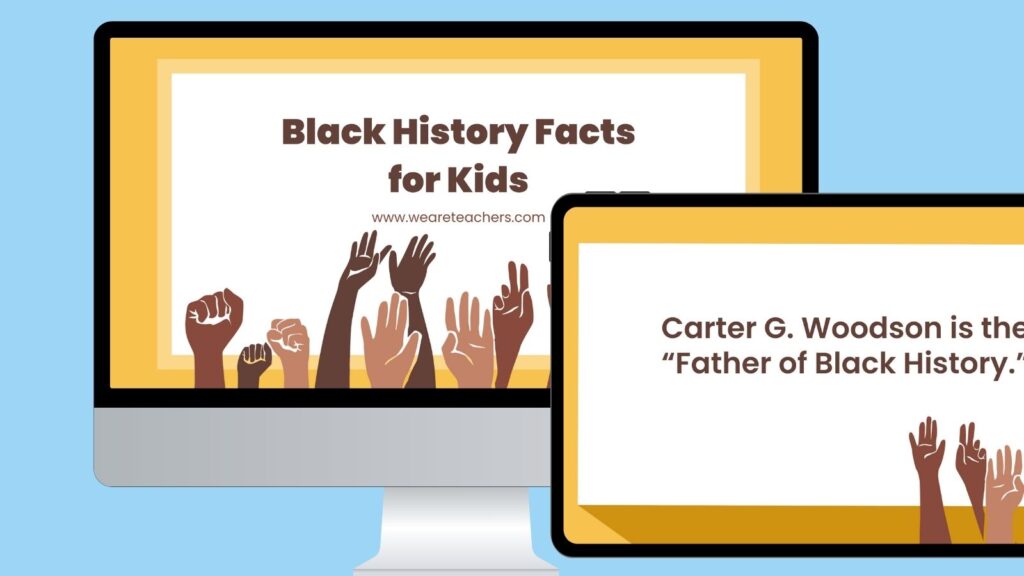[ad_1]
Black History Month has been recognized every year since 1976. While it’s important to take this opportunity to look back and reflect as well as celebrate incredible milestones and victories, we don’t have to wait until February! Here are some Black History Month facts to share with kids all year round.
Plus, click the button below to grab a free copy of our Black History Month Facts Google Slideshow to share with your class.
Black History Month Facts for Kids
1. Carter G. Woodson is the “Father of Black History.”

The historian was the second Black student to graduate from Harvard University with a doctorate degree. His incredible research led to the establishment of Black History Month in 1926. It later became a nationally recognized annual event in 1976.
2. Black History Month is in February in recognition of the birthdays of Abraham Lincoln and Frederick Douglass.

The month was chosen in recognition of the birthdays of Abraham Lincoln and Frederick Douglass. During the Civil War, Lincoln worked tirelessly to expand the rights of Black Americans. Douglass, a formerly enslaved man, became a leader who fought to end slavery during the abolitionist movement.
3. William Tucker was the first Black person born in the 13 colonies.
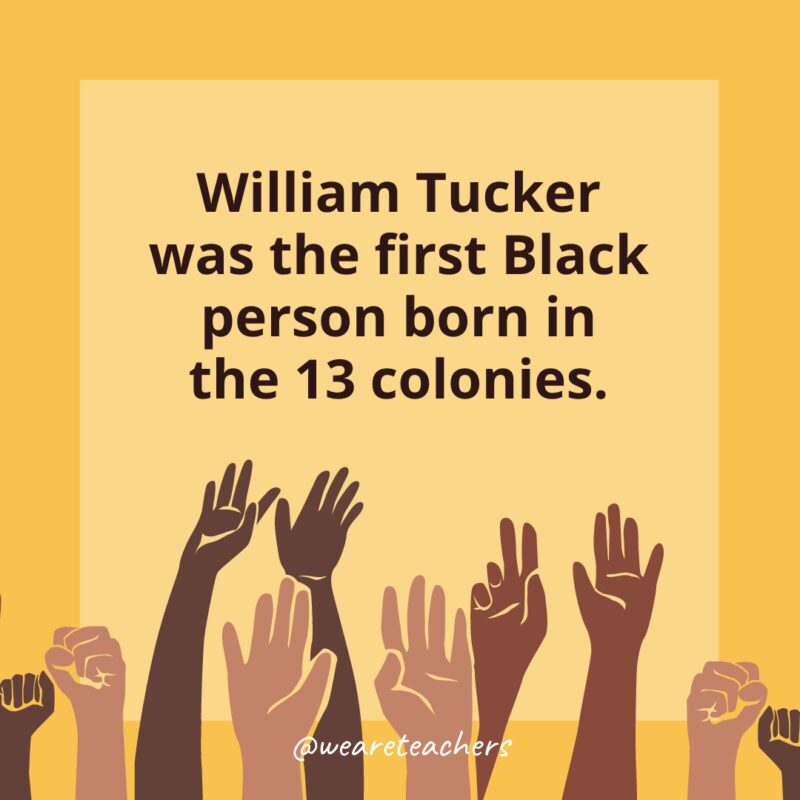
William Tucker was born in 1624 to indentured servants in Jamestown, Virginia. They were among the first group of Africans brought to the colonies by Great Britain.
4. The first novel published by a Black author was published in 1853.

William Wells Brown wrote “Clotel: or, The President’s Daughter“. He was a lecturer and abolitionist.
5. Claudette Colvin was the first Black woman known to refuse to give up her seat on a bus.

If you’re looking for Black History Month facts to surprise your students, try this one. While Rosa Parks is often given credit for being the first Black woman to refuse to give up her seat on a bus, Claudette Colvin was actually arrested nine months earlier for refusing to give up her seat for white passengers.
6. Lucy Stanton was the first Black woman to earn a four-year college degree.

Stanton earned a literary degree from Oberlin College in 1850.
7. Lucy Terry wrote the first known poem by a Black American.

From a young age, Lucy Terry lived in enslavement in Rhode Island. She was freed at age 26 when she married a free Black man. She penned “Bars Fight” in 1746.
8. Phillis Wheatley published the first book of poetry by a Black author in 1773.

A family in Boston purchased Wheatley, who was born in Gambia, when she was just 7 years old. She was emancipated shortly after releasing Poems on Various Subjects, Religious and Moral.
9. Nat King Cole was the first Black American to host a television show.

The beloved jazz pianist and singer hosted The Nat King Cole Show on NBC in 1956.
10. Hattie McDaniel was the first Black person to win an Oscar.

In 1940, Hattie McDaniel took home the Academy Award for her supporting role in Gone With the Wind. It took 24 more years for Sidney Poitier to become the first Black man to win the Best Actor award (for Lilies of the Field), and 62 years for Halle Berry to win the Best Actress prize (for Monster’s Ball).
11. In the early 1770s, Quakers created the first public school for Black children.

Anthony Benezet founded the school. He was a white Quaker, educator, and abolitionist.
12. Thurgood Marshall was the first Black justice to serve in the U.S. Supreme Court.

The longtime attorney was officially nominated in 1967 by President Lyndon B. Johnson. Marshall served until 1991.
13. Barack Obama was the first Black president of the United States.
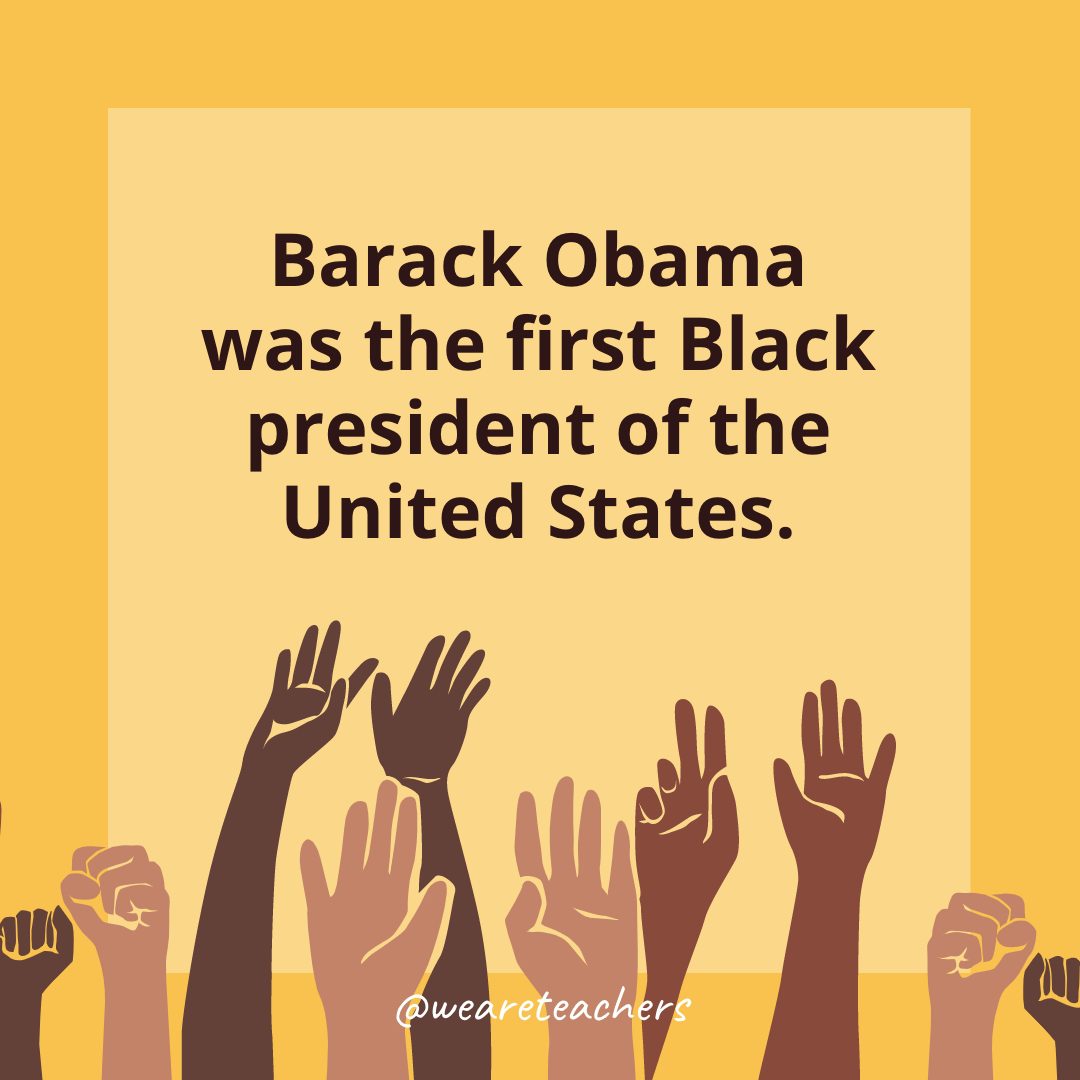
The lawyer and former senator was first elected in 2008.
14. Kamala Harris is the first Black vice president of the United States.
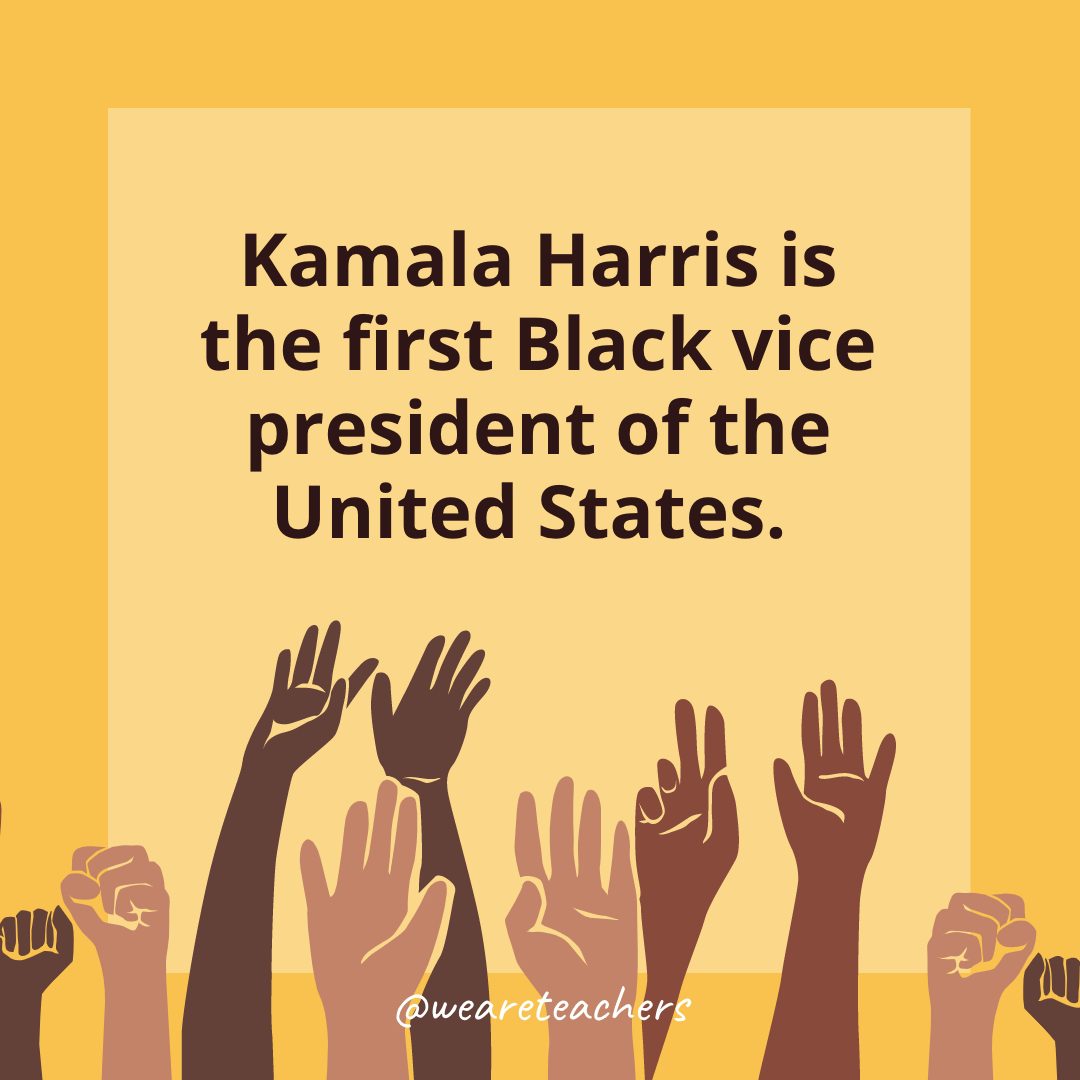
When she took office in 2021, Harris became the first woman and first person of African or Asian descent to step into the role of vice president. Her father immigrated from Jamaica and her mother immigrated from India.
15. “Rapper’s Delight” by Sugar Hill Gang was the first commercially successful rap record.
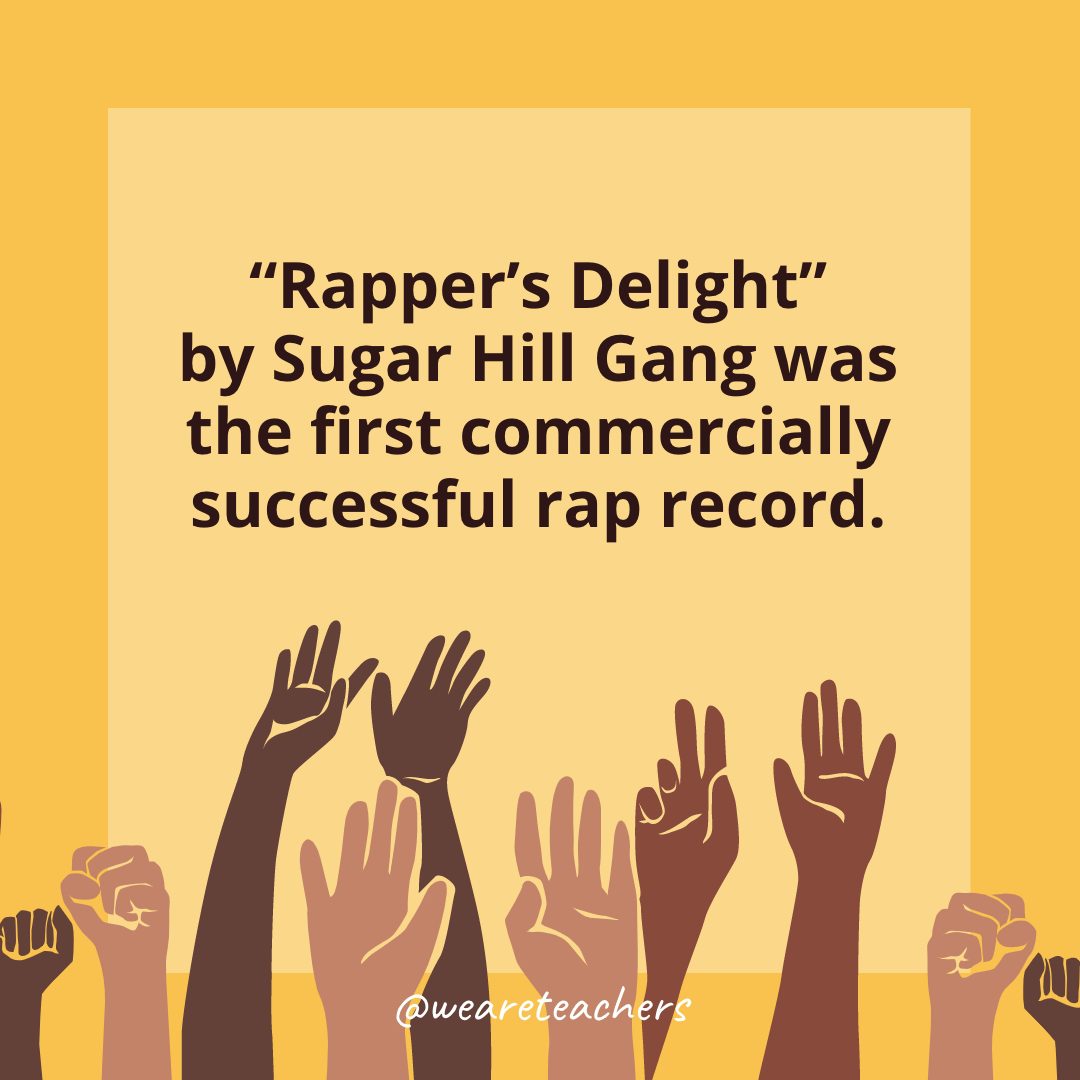
The ground-breaking song was produced by “Hip Hop’s First Godmother,” Sylvia Robinson. Along with her husband, Robinson co-owned Sugar Hill Records. It was the first hip-hop music label.
16. Stevie Wonder was the first Black artist to win a Grammy Award for Album of the Year.

Not only did he win for his 1973 masterpiece Innervisions, but he went on to become the first and only musician to take home the prize three years in a row!
17. Bryant Gumbel was the first Black person to host a morning show.
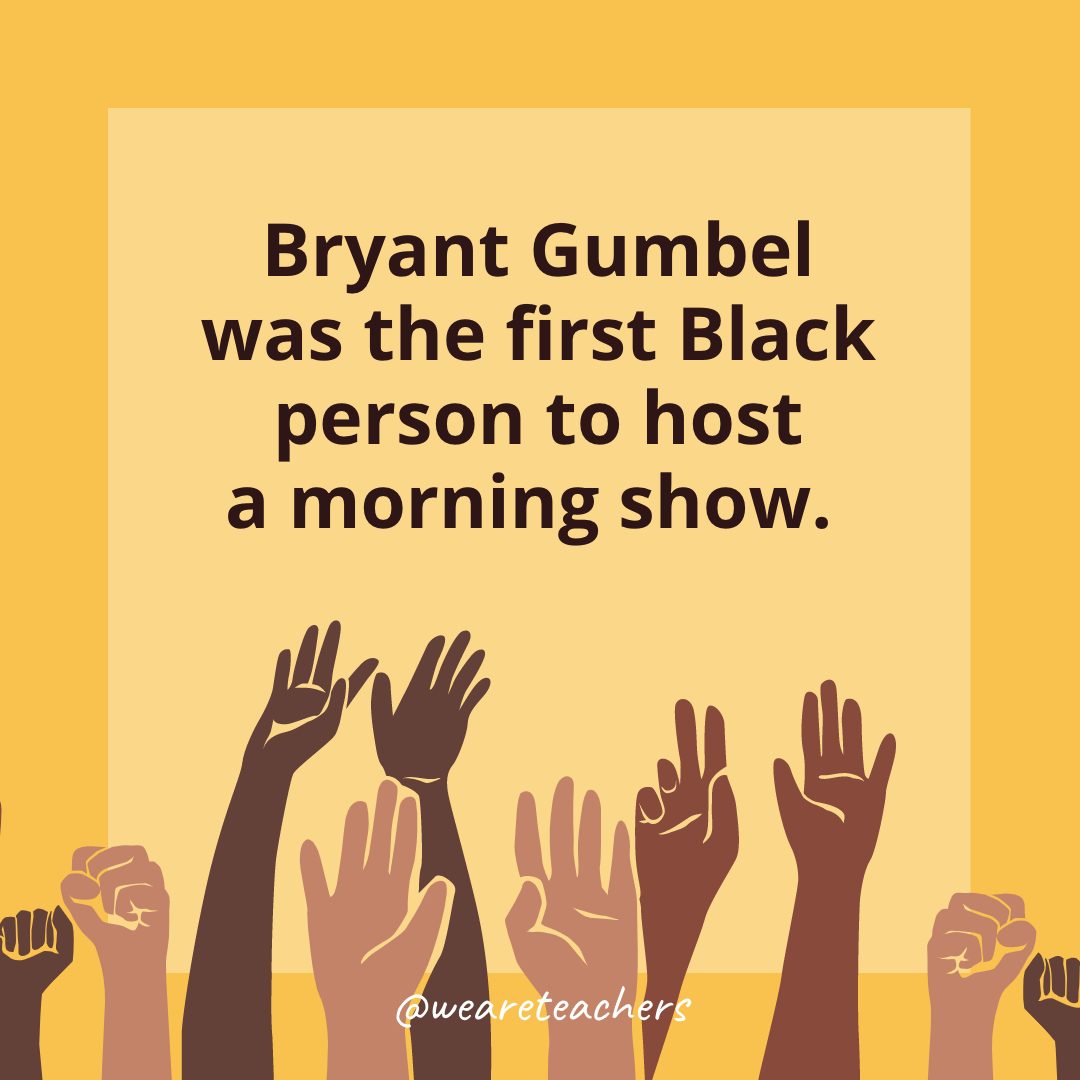
The broadcast journalist joined NBC’s Today show in 1981.
18. John Taylor was the first Black athlete to win a gold medal at the Olympics.
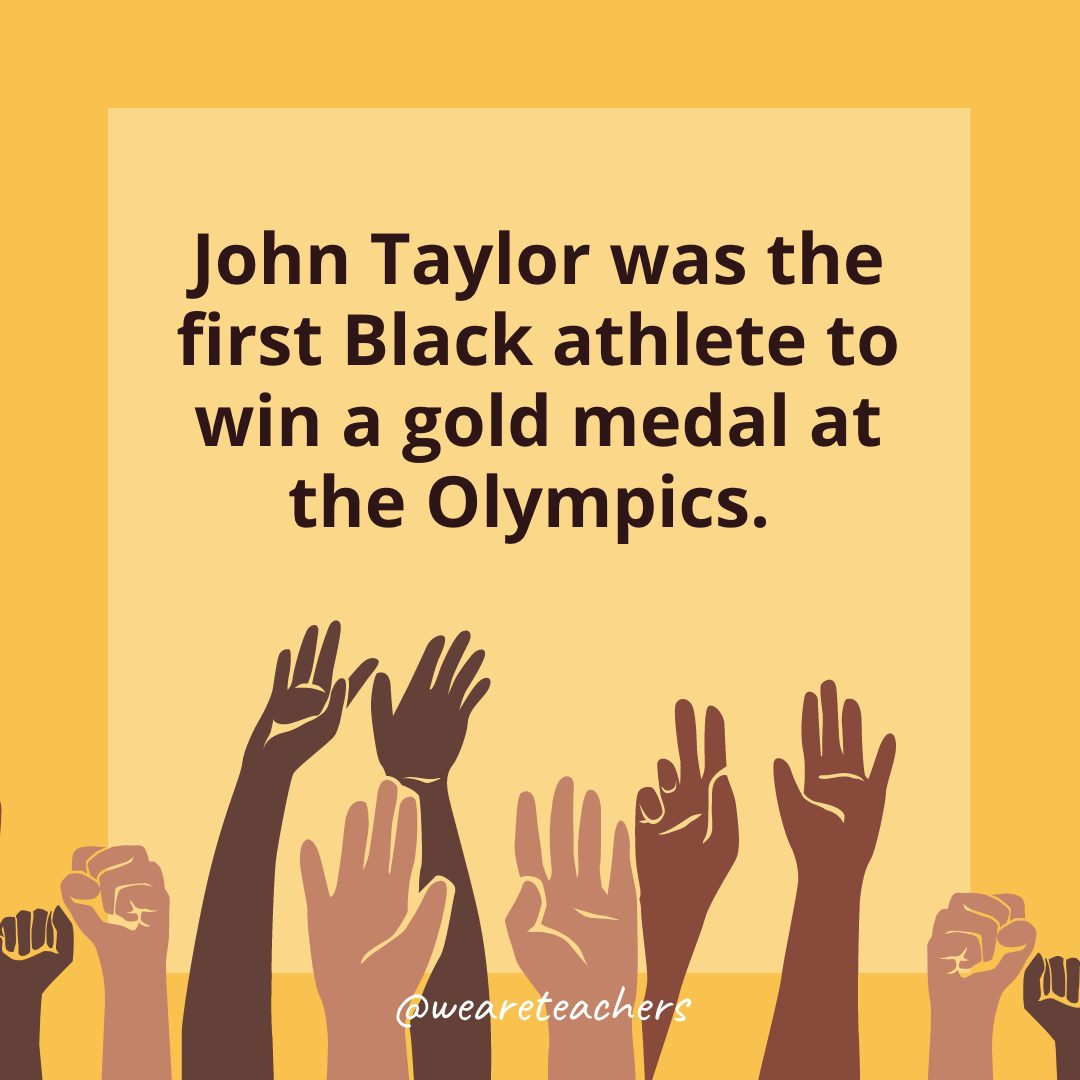
Taylor won the 4 x 400-meter relay in 1908. It took 40 years, but Alice Coachman became the first Black woman to win gold after dominating the high jump.
19. Madam C.J. Walker was the first Black female self-made millionaire.

Walker created a line of hair-care products for Black women. The Netflix series Self Made tells her amazing story.
20. Robert Johnson was the first Black billionaire.

He founded Black Entertainment Television (BET) and amassed a fortune when he sold it in 2001.
21. Althea Gibson was the first Black tennis player to win a Grand Slam.

Gibson won her first in 1956 and went on to win another 11 Grand Slam tournaments throughout her career.
22. George Washington Carver’s work led to more than 500 products created from peanuts and sweet potatoes.

The agricultural scientist promoted crops alternative to cotton and his research greatly contributed to the economic growth of the rural South. He also invented techniques to avoid soil depletion.
23. Fritz Pollard and Bobby Marshall were the first Black athletes to play in the NFL.
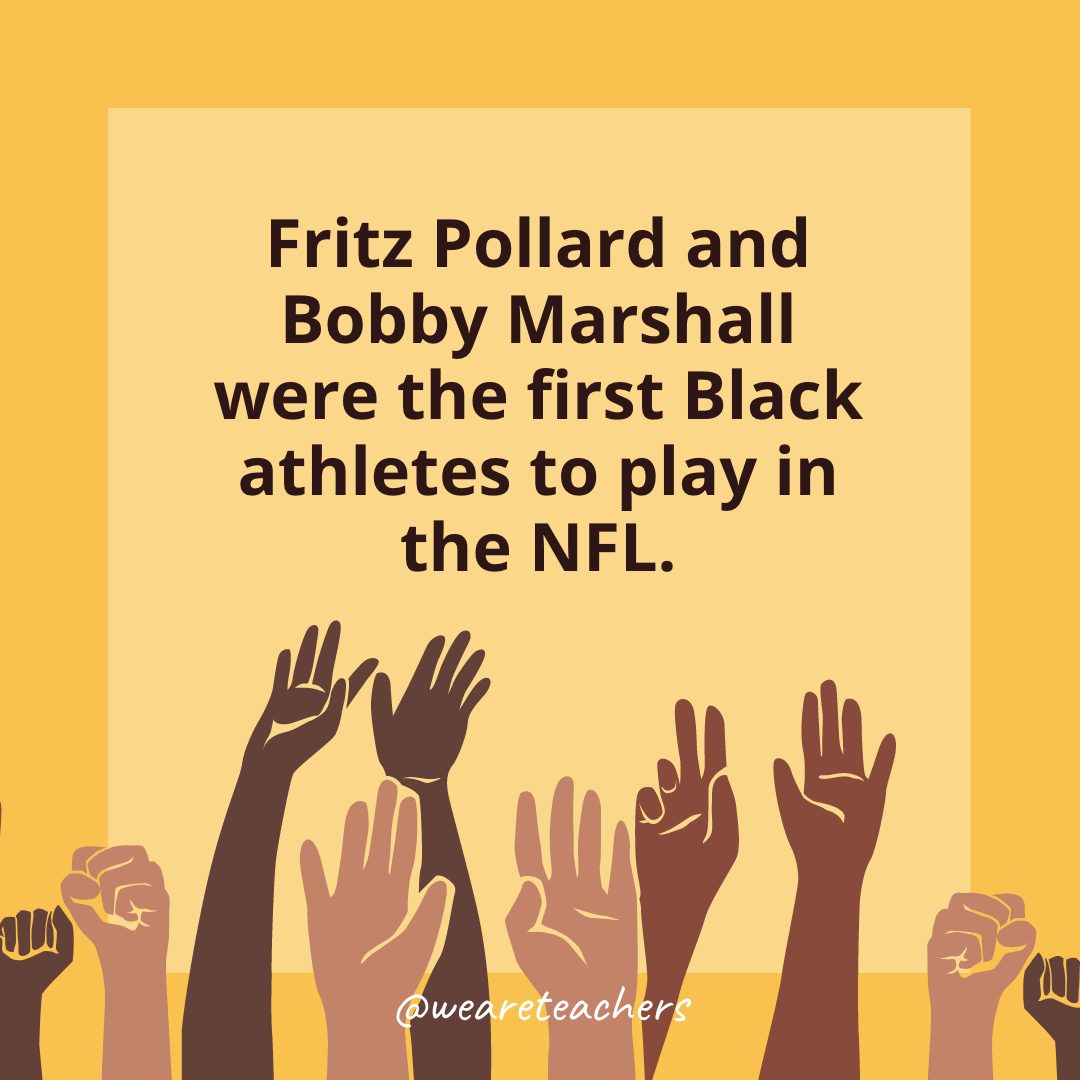
The football players joined in 1920. Later, Pollard would go on to become the NFL’s first Black coach.
24. Sheryl Swoopes was the first player to sign with the WNBA.
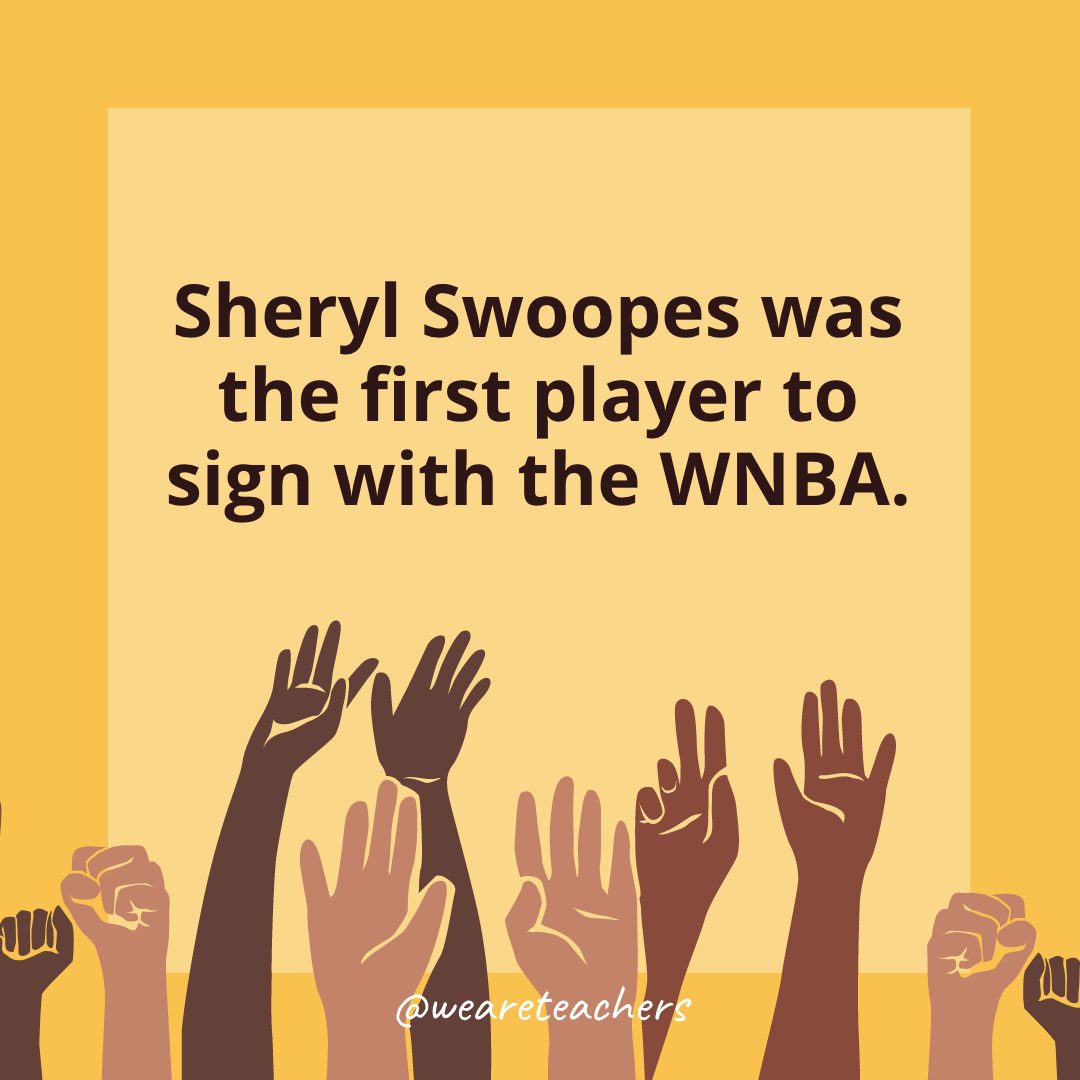
The star athlete joined in 1996, and the league debuted the following year.
25. Gabby Douglas made history at the 2012 London Olympics.
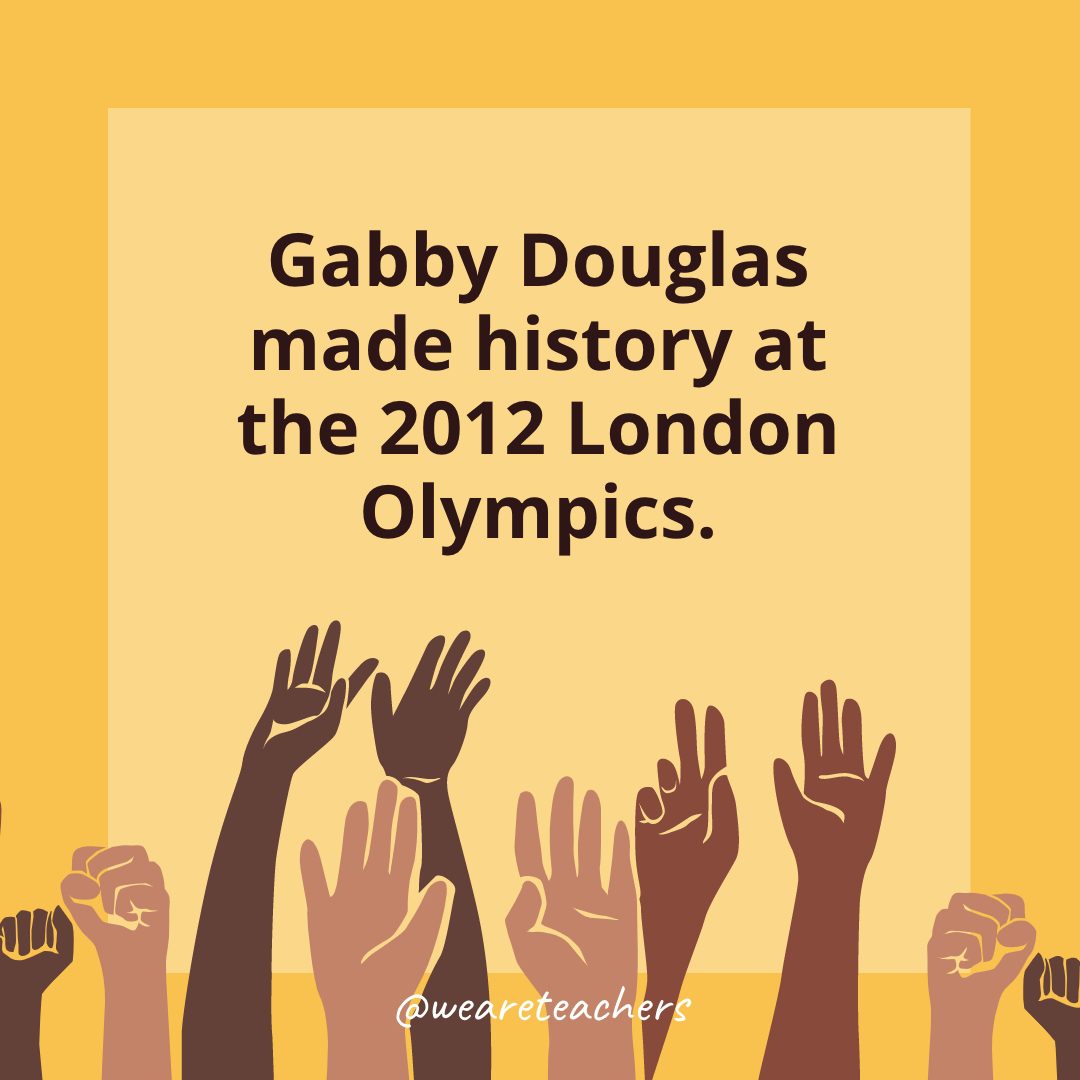
The gymnast became the first Black woman to win the Individual All-Around title.
26. Septima Poinsette Clark helped found nearly 1,000 citizenship schools.

The efforts by the civil rights activist and campaigner helped Blacks register to vote.
27. The first Black-owned newspaper was published in 1827.

Freedom’s Journal, published in New York City, was the first Black-owned and -operated newspaper in the United States. It provided a platform to counter racist narratives and advocate for abolition and civil rights.
28. Mae Jemison was the first Black woman to travel to space.
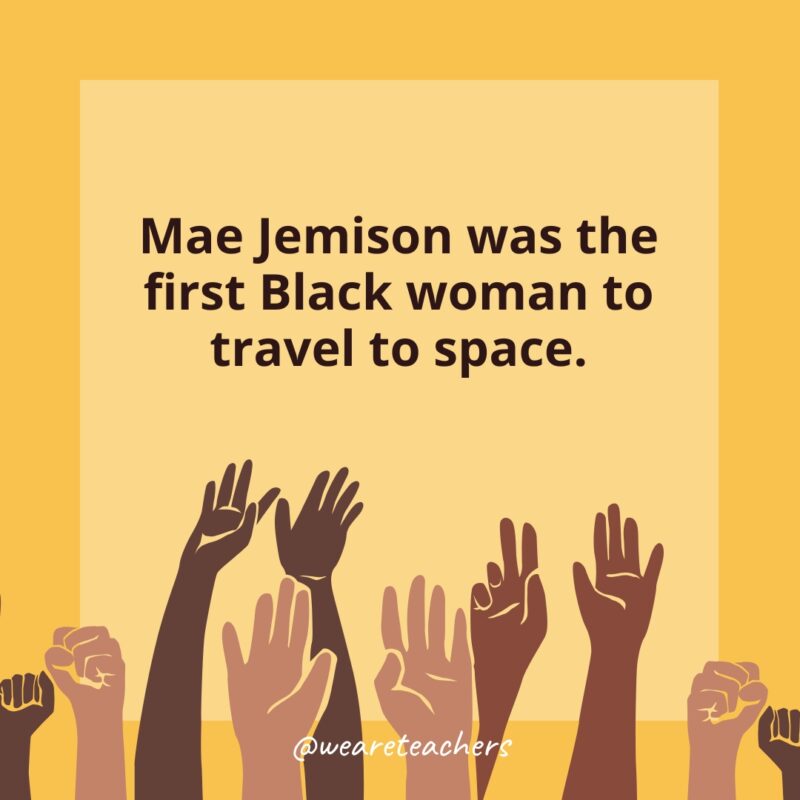
In 1992, Dr. Mae Jemison made history aboard the Space Shuttle Endeavour. She is also a physician, engineer, and advocate for STEM education.
29. Bass Reeves, the first Black deputy U.S. marshal, may have been the inspiration for the Lone Ranger.
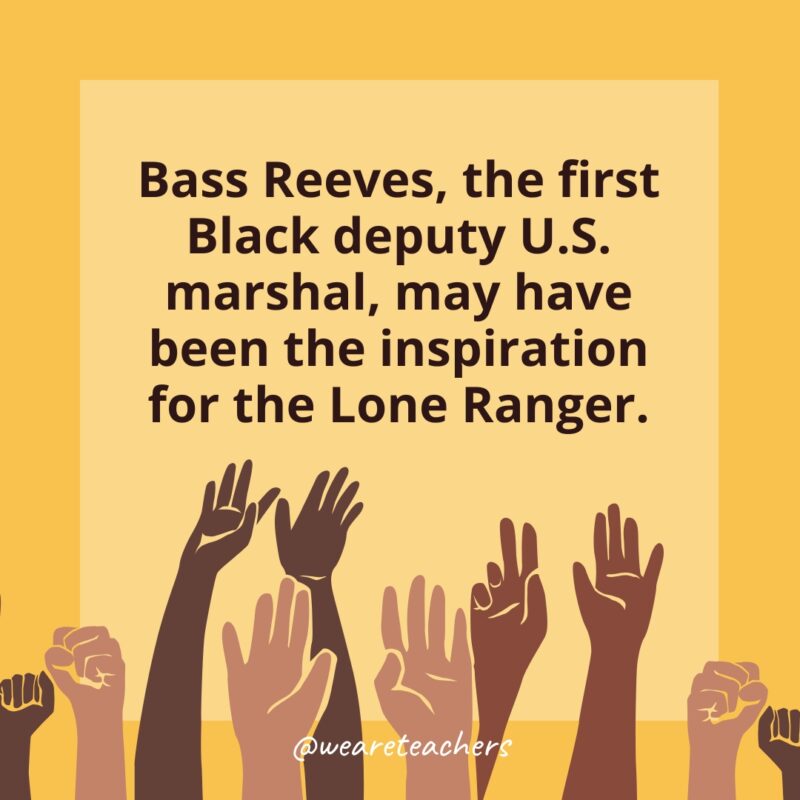
While it cannot be proven conclusively, many believe Reeves to be the inspiration for the famous character. Born into slavery, he became a legendary lawman in the Old West, capturing more than 3,000 fugitives during his career.
30. The first Black-owned hospital opened in 1891.
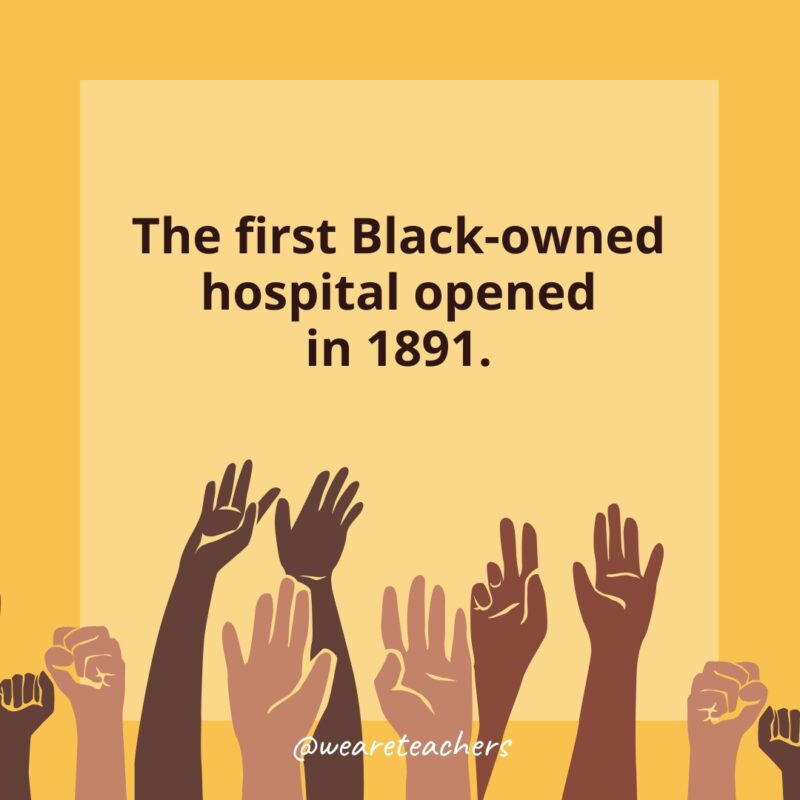
Provident Hospital in Chicago was founded by Dr. Daniel Hale Williams, who also performed one of the first successful open-heart surgeries.
31. Oscar Micheaux was the first Black filmmaker to produce a feature-length film.
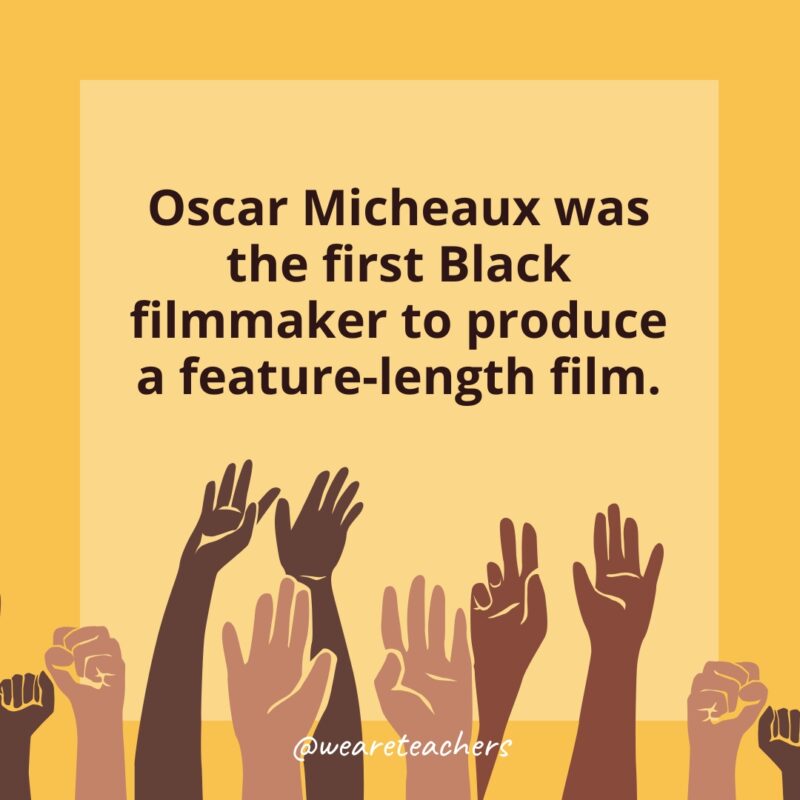
Micheaux released The Homesteader in 1919, paving the way for Black voices in cinema.
32. Henrietta Lacks’ cells revolutionized medicine.

In 1951, cells taken from Henrietta Lacks without her knowledge became the first immortal human cells. Known as HeLa cells, they have been instrumental in medical research, including the development of vaccines and cancer treatments.
33. Marian Anderson was the first Black singer to perform a leading role at the Metropolitan Opera.
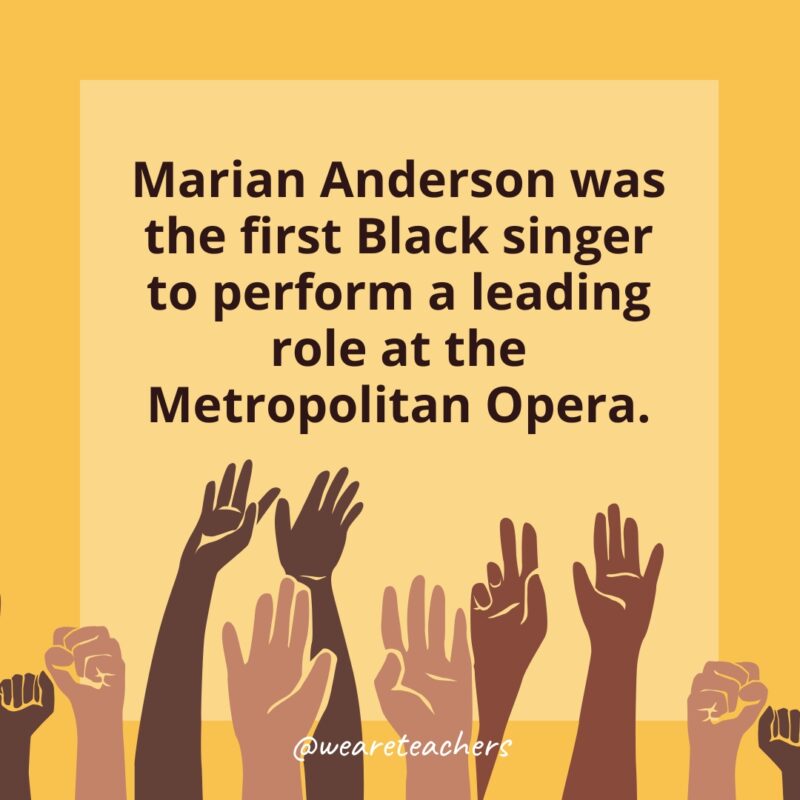
In 1955, Anderson broke barriers in classical music by appearing on the Met stage, becoming a symbol of progress during the Civil Rights Movement.
34. Early Black inventors held more than 50,000 patents in the United States.
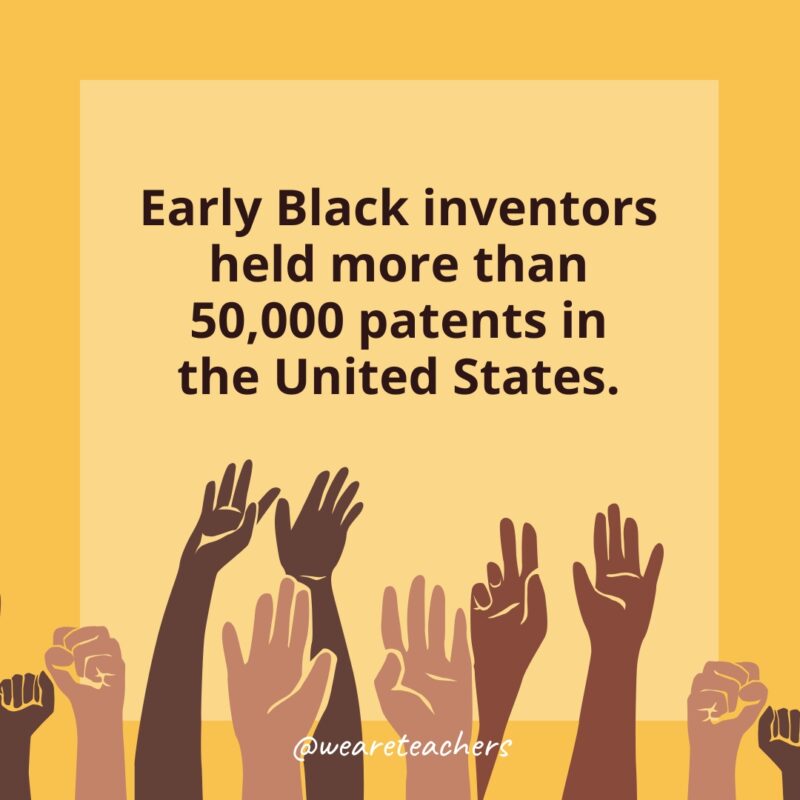
In the period from 1870 to 1940, “Black people accounted for more inventions during this period than immigrants from every country except England and Germany.” Innovations like the traffic light (Garrett Morgan), modern refrigeration (Frederick McKinley Jones), and automatic elevator doors (Alexander Miles) were created by Black inventors.
35. Shirley Chisholm was the first Black woman to run for president.
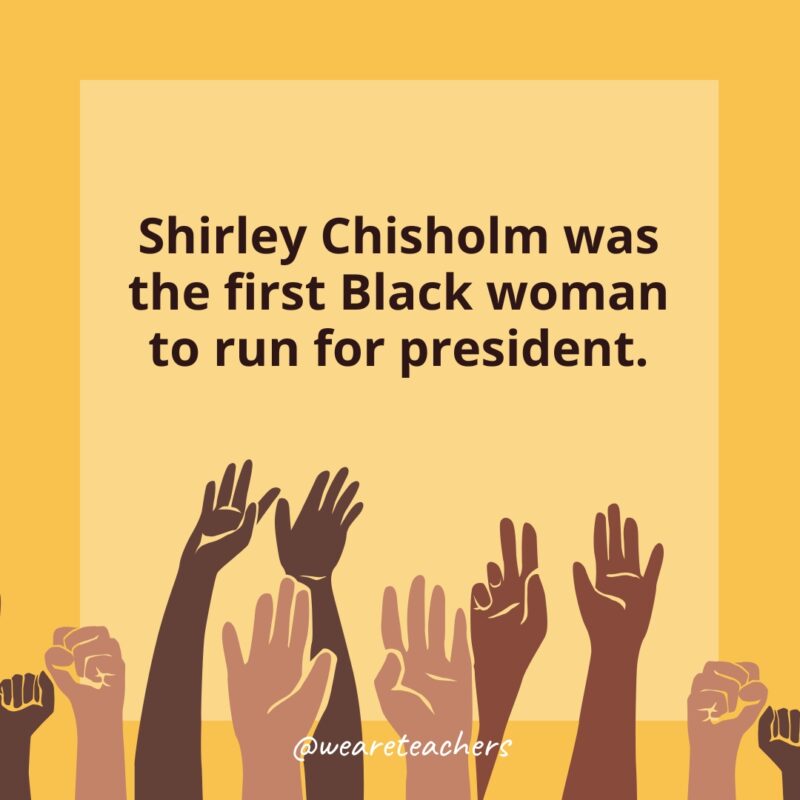
In 1972, Chisholm campaigned for the Democratic nomination, making history as a trailblazer for women and people of color in politics.
36. The Black Lives Matter movement was founded by three women.
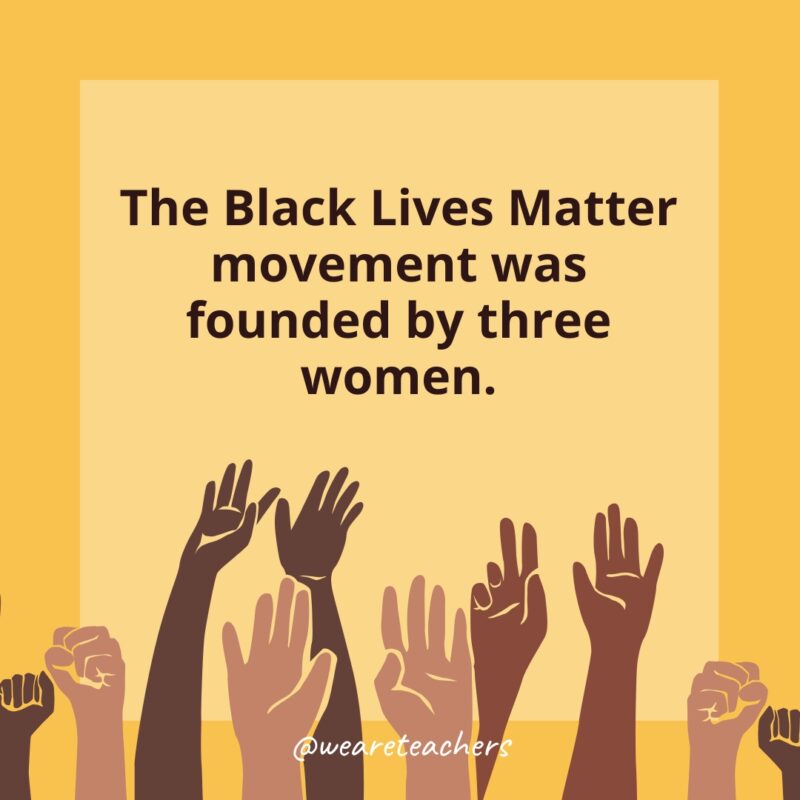
Patrisse Cullors, Alicia Garza, and Opal Tometi started the global movement in 2013 to combat systemic racism and violence against Black communities.
Get your free Black History Month facts slides!

Click the button below to get your free Google Slideshow of all the facts above to share in your classroom.
Do you have more interesting Black History Month facts? Share them in the We Are Teachers HELPLINE group on Facebook!
For more articles like this about Black History Month Facts, be sure to subscribe to our newsletters!
[ad_2]
Source link

